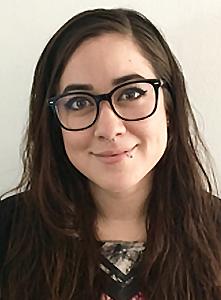
Ashli Anda
Ashli Anda received her bachelor’s degree in philosophy from California State Polytechnic University in Pomona, California, her master’s degree in philosophy from Boston College, and she is currently a doctoral student at the University of Illinois at Urbana-Champaign. She primarily works on ethical issues pertaining to education and families. Her specific research interests are issues of inequality and diversity in higher education, prison education and recidivism, and the responsibilities and rights of parents and children. In addition to her academic research interests, she enjoys spending time with her black cat and German Shepherd, playing board games, listening to live music, and traveling.
Kant’s Lectures on Pedagogy include many interesting, insightful, and curious comments about the cultivation of agency through education. In this paper, I argue that universities ought to explicitly realize they have a responsibility to provide the conditions of possibility for the cultivation of agency. If we have a duty to perfect ourselves and education is exactly the means by which we self-perfect, then universities should be the types of institutions that make this possible. First, I claim that universities must be interpreted as ethical communities; here it is important to understand the features of membership of a community. Second, I discuss a conception of both perfect and imperfect duties to cultivate agency; the development of agency through education is how we realize our ends (and make ourselves worthy of humanity) and this education should be carried out in a particular sort of dutiful way. Finally, I say that the university, as an ethical community, must establish (at least) two kinds of conditions for agents to develop. First, basic necessities must be available and accessible and, second, the learning environment ought to promote curiosity and enlightenment. Given that moral-practical reason requires us to see our cultivation as a duty, the very institution that sees itself as cultivating students to become certain kinds of people ought to be analyzed and evaluated.
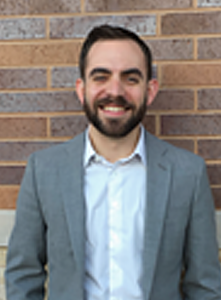
Kirk Anderson
Kirk Anderson is a doctoral student in Educational Policy Studies at the University of Wisconsin-Madison. His research examines how institutions of higher education construct and manage human differences through diversity discourses and practices. His dissertation is an ethnography of the daily realities of diversity policy and practice at a flagship public university that was in the process of implementing a new strategic diversity plan while also navigating a racialized institutional crisis. His work considers the unintended consequences of using diversity to engage human differences in institutional life and explores how the power relations engendered by diversity work shape the experiences of both diverse individuals and diversity workers. Kirk is also interested in how political philosophy can help inform how institutions, at all levels, engage student protestors on issues of identity and inequality.
Kirk recently published an article in The Journal of Higher Education.
While student protest movements have long been a staple of university life, conflicts between student protestors and university leaders are commonly framed as administrative or legal dilemmas. This paper considers the moral and ethical dimensions of these conflicts by examining a particular case at an institution I call State University. This conflict arose during the 2015-2016 school year in response to national conversations about racism on college campuses as well as to a series of acts of racism and prejudice on campus. I bring this ethnographic case into conversation with the work of political philosophers Russell Bentley and David Owen’s (2007), who argue that the civic virtues of responsiveness and endurance should guide conflicts between minority communities and those in power. Using the case of State University, I critique and amend their framework by demonstrating that responsiveness exists on a continuum from thin to thick. When thin responsiveness occurs, the civic virtue of endurance often turns into what anthropologist Elizabeth Povinelli (2011) calls exhaustion, the slow wearing out of political subjects and their social projects. Thick responsiveness, in contrast, is characterized by the validation of student’s experiences and reasoning and shifts in institutional power in ways that invigorate both activists and the institution as a whole.
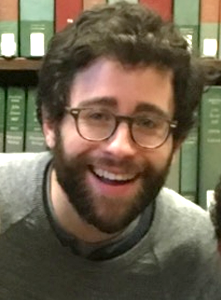
Zachary Barber
Zachary is a doctoral student in philosophy at the University of Rochester. He has a masters in education from Harvard University. His research interests are in epistemology and ethics, and especially their intersection within the philosophy of education. Zachary formerly taught 5th and 6th grade in Chicago.
I argue that the aim of preparing citizens for democratic participation could be promoted by implementing controversial political discussion in K-12 pedagogy. I draw on work by Wayne Riggs (2015) and Catherine Elgin (1996) in the epistemology of emotions to argue that since emotions function epistemically, democratic virtues (like e.g. open-mindedness) depend on underlying emotional dispositions and abilities. Successful democratic deliberation, then, presupposes a general set of emotional dispositions and abilities in deliberators. If schools aim to prepare students for democratic participation, they should aim to cultivate these dispositions and abilities. I argue that guided practice in controversial political discussion is a good curricular candidate for this task. I end by highlighting the practical contingencies that should weigh into any ultimate decision to implement this pedagogy.
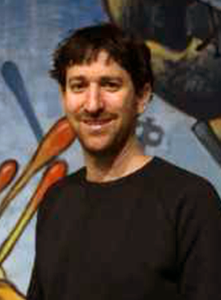
Gideon Dishon
Gideon Dishon holds a PhD in education from the University of Pennsylvania, a Master’s from The Cohn Institute for the History and Philosophy of Science and Ideas at Tel Aviv University, and a Bachelor’s in philosophy from Tel Aviv University. His research explores the philosophical roots of civic, character and moral education, focusing on how behaviors acquired in educational settings relate to conduct in other contexts, with a specific interest in game-based environments.
Gideon recently published an article in Theory and Research in Education.
This paper sets out to reconceptualize the civic role of schools by developing Dewey’s framework of civic education as the cultivation of democratic habits. Schools’ influence on students’ civic behaviors goes beyond direct civic lessons: through the pedagogies, norms and routines practiced throughout the school, children develop habits of interactions with peers and adults. Dewey’s use of the term ‘habit’ deviates from the everyday connotations of mindless, repetitive modes of action. Instead, habits are ingrained solutions to problems we encounter in the environment. I explore three attributes of habits that distinguish them from the prevailing emphasis on civic skills and dispositions, and that shifts the understanding of the aims, methods and challenges of civic education. First, the context-dependent character of habits entails a more modest aim for citizenship education – developing habits of conduct in public settings, rather than ingrained character traits. Second, as habits are a form of practice, citizenship education focuses less on explicit civic lessons and more on designing schools in ways that present students with situations that indirectly encourage behaviors such as collaboration, deliberation, and compromise. Finally, the interconnected nature of habits stresses the pivotal challenge facing citizenship education – the transference of in-school behaviors to civic contexts.
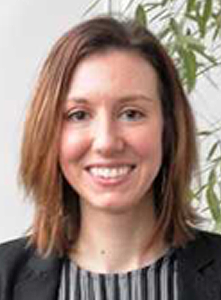
Jenn Dum
Originally from Carlisle, Pennsylvania, Jenn Dum is a Ph.D. Candidate in philosophy at Binghamton University, SUNY. She works on social and political philosophy, educational justice, and applied ethics. Her dissertation argues that educational justice must be articulated in relational terms in order to capture the complex normative demands on education. She has published papers about educational research, the human right to education, and the social aims of education. She enjoys community gardening, talking politics, and playing the viola, as well as examining the philosophical significance of vampires and reality television.
In this paper, I argue that educational justice needs to be characterized in relational rather than distributive terms, and in particular in terms of substantive reciprocity. I characterize justice in terms of the normative demands on social institutions, and then show that my view follows from a series of reasonable premises. First, I establish that it is a demand of justice for schools to provide the conditions of students’ individual development into autonomous persons. Then I argue that students need active social participation for this development. Next, I argue that students need social participation structured by substantive reciprocity. Substantive reciprocity is a relational normative demand that supports responsive relationships in which individuals can actively engage with others. This is necessary for developing the ability to follow through with one’s goals and to represent one’s needs and interests to others. In contrast to formal reciprocity, substantive reciprocity depends on the individuals’ features, needs, and the context of the relationship. The relationships within a school should be substantively reciprocal because this supports students’ individual development and thereby serves the demands of justice. I conclude by commenting more on what it means for educational institutions to be assessed in terms of substantive reciprocity.
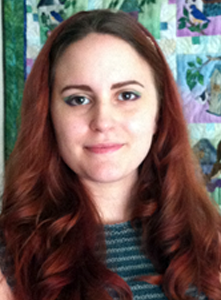
Frances Heather Fairbairn
I am a PhD candidate in the Sage School of Philosophy at Cornell University. My dissertation research is located in the areas of Philosophy of Science and Metaphysics, focussing on the notions of reduction and the natural-non natural distinction. More specifically, I endeavour to understand what makes one category more natural than another, and how judgements of comparative naturalness influence our desire and ability to reduce one thing to another. I have additional interests in Social Epistemology and Philosophy of Education. I love to teach and am passionate about prison education.
Should incarcerated individuals have access to Higher Education in Prison? It has been popular to defend HE in Prison by emphasising the apparent positive effect it has on recidivism rates, and in turn on costs to the tax payer. I, like many, am in favour of Higher Education in Prison. And I believe that providing access to Higher Education in Prison lowers recidivism rates and proves more cost-effective in the long run. However, I also believe that there are strong epistemic, moral, and socio-political arguments in favour of Prison Education that arise out of the generally accepted aims of higher education, and that have been largely overlooked in the debate so far. This paper seeks to provide those arguments. I will argue that the epistemic aims of Higher Ed compel us to invest in HE in Prison, even if we take those epistemic aims to be relatively weak. And I will argue that, if (as we should) we accept certain Moral and Socio-Political Aims of Higher Education, these aims also compel us to support HE in Prison. While considerations of recidivism and cost are important and compelling, viewing the issue of HE in Prison solely in those terms narrows our understanding of a complex and nuanced question.
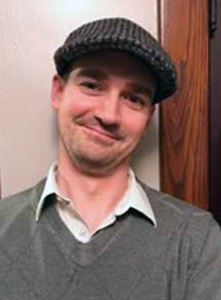
Tim Kwiatek
Tim is second-year PhD student in the Sage School of Philosophy at Cornell. He is interested in moral responsibility and metaethics. He is currently working on questions concerning the connections between moral value, meaning and responsibility. He holds a BA in philosophy from UNC-Chapel Hill.
It is inefficient for students drop out of universities. The university invests resources in the student without receiving the maximum benefit. Call this the university side of the problem. The student invests resources in the university without receiving the maximum benefit. Call this the student side of the problem. In the literature on higher education, the discussion of dropouts only seems to offer one strategy for both sides of the problem: retention. The plan is to prevent students from dropping out. Success in this strategy would resolve both sides of the problem. But there will always be attrition rates. So a strategy that aims to fix the inefficiency by retention alone can at most aim to minimize the losses, rather than to eliminate them. If minimization of losses is the goal, we should consider other strategies that could contribute to that. In this paper, I look to a harm reduction model of approaching substance abuse problems and consider a roughly analogous strategy for dropouts in higher education. Assuming some students will not complete the degree, we can identify the preventable harms suffered by dropouts and the unrealized goods higher education might provide them. Combining a harm reduction strategy with a focus on retention, we can further minimize the inefficiency.
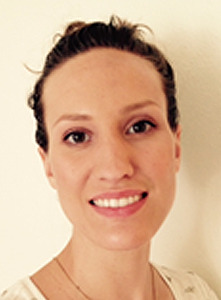
Emily Lacy
Emily Lacy is working on her PhD in Philosophy at the University of Illinois at Chicago. Prior to starting there, she was a middle school reading teacher in Houston. She received her MA in philosophy from the University of Southampton in the U.K., and her BFA in painting from the University of Houston.
In this paper I argue that there is an illuminating parallel between the skills involved in engaging with an artwork and engaging with the reasoning of other citizens. Comparing the two skill sets draws attention to a feature of listening to other citizens that is often obscured: it takes a significant amount of work to understand one another’s perspectives, ways of reasoning, and motivations. I argue that both art and the reasoning of other citizens require us to respond to subtle features, give the benefit of the doubt, and adjust our understanding over time. Social reasoning does not have a pre-established form, and our reasons are not all easily accessible. The reasons of others may not be presented in a way that would allow me to see them as reasons for me. For citizens in the majority, it is not only the particular reasons that are often taken as granted, but the form that reasoning can take, as well as background assumptions that remain implicit in reasoning. A responsive listener must assume that her interlocutor is reasonable, even if it is not immediately obvious how this could be so.
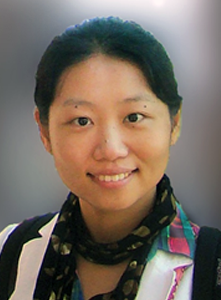
Hao Liang
Hao is a third-year PhD student in philosophy at Northwestern University. Her research focuses on ethics, metaethics, and history of moral and political philosphy, especially Kant and Hegel. In her dissertation, she attempts to show that Hegel’s insights on human freedom bear on contemporary meta-ethical discussions of agency. Prior to coming to Northwestern she received MA in philosophy from University of Wisconsin – Milwaukee. She serves on the Climate Committee at the Department of Philosophy in Northwestern 2016-2017.
Kant claims that one of the greatest problems of education is how to unite submission under lawful constraint with the capacity to use one’s freedom. This idea of imposing constraint on children seems to be in conflict with the spirit of Kant’s moral philosophy for he claims that a moral agent is autonomous insofar as she is fully self-determined, not determined by anything external. In this paper, I attempt to show that there is no conflict between these two claims. My argument is divided into two parts. The first argument is to draw an analogy between Kant’s philosophy of right and moral education. Similar to the structure of the state of nature, children are in the normative state of nature for their actions lack moral authority. If human beings have moral obligation to move from the state of nature to the civil state, then parents as educators are justified in imposing certain constraints on children. My second argument is to show that although certain constrains are necessary in the process of education, moral education is distinctively not mechanic, but free. The goal of moral education is not to instill moral doctrines into children’s mind; rather, it aims at creating a safe space to let children try to exercise their capacity of free will. Moral education is about self-formation.
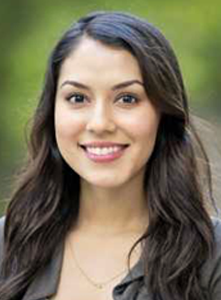
Diana Mercado-Garcia
Diana (dmercado@stanford.edu) is a doctoral candidate in Education Policy and Sociology of Education at Stanford University. Before coming to Stanford, she worked at the American Institutes for Research (AIR) for four years on pre-K-12 education research. Her research interests relate to five main areas: English language learners, education policy, organizational change, school finance, and social inequality. Specifically, Diana aims to develop a deeper understanding of the extent to which large-scale policies influence organizational change at the school-, state-, and federal-level to reduce social, economic, and racial inequalities. Furthermore, she is interested in questions regarding the equitable distribution of resources. She holds a B.A. in Sociology and Spanish Linguistics from UC Berkeley.
This paper explores the primary responsibilities of the university, the role of the professor, and the role of the graduate student in serving the public good. Given the inherent tensions in the multiplicity of the university, professor, and graduate student’s role, is it possible to serve a duty to science and the creation of knowledge in a way that serves the greater good? Ultimately, this paper comes to the conclusion that in all of its facets the university should always strive to benefit the public good—since this is the only way to ensure an adequate balance across the multiplicity of interests and duties of the university. However, there are differential burdens on who is responsible for executing this vision
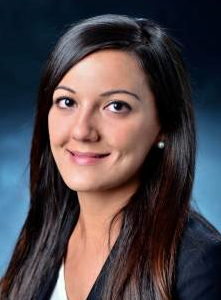
Wagma Mommandi
Wagma Mommandi is a doctoral candidate in the School of Education at the University of Colorado Boulder. Wagma holds an M.Ed. in Curriculum and Instruction from American University and a B.A. in Biology from Colorado College. Prior to graduate school, Wagma was a high school science teacher and coach in the District of Columbia Public Schools. Her research interests lie at the intersection of education policy and critical theories of race.
Charter schools are a growing part of the American education system. Many early advocates of charter reform argued that giving control over key school functions local stakeholders would restore the democratic function of schools (Lubienski & Weitzel, 2010). But as the charter sector has grown, a subsector has emerged with practices that make schools less accessible to all students (Lubienski & Weitzel, 2010). The purpose of this paper is to consider how trends in charter school accessibility hold up to a democratic theory of public education (Gutmann, 1999; Apple & Beane, 2007) that centers making up for our nation’s collective education debt (Ladson-Billings, 2006).

Augusta Moore
Augusta Moore is a graduate student at the University of Wisconsin-Madison. She received her Bachelors in Biology and Philosophy from Mount Holyoke College in 2012 and her Masters in Philosophy in 2016 from UW-Madison. She is currently interested in Political and Social Philosophy with a focus on civic virtues: those virtues that citizens ought to exhibit to ensure the proper functioning of the state. When not doing philosophy, Augusta likes to play Dark Souls 3 and tease her cat, Seymour.
If we see K-12 education as a means of civic virtue education then it is important to consider what kinds of virtues are necessary to participate effectively within the state. Deliberation should be seen as an essential kind of participation and so, for a deliberative, democratic state to be legitimate all of those bound by the decisions made through deliberation must have the ability to participate within that process. In the current political climate, however, it is often the case that particular minority groups (racial groups for example) are shut out of this deliberative process. I argue that this is, in part, because of a lack of a particular civic virtue, beneficence.
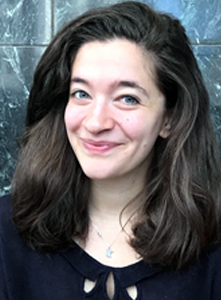
Macy Salzberger
Macy Salzberger is a Ph.D. student in the philosophy department at the University of North Carolina- Chapel Hill. She received her B.A. in philosophy and history from the University of Wisconsin- Madison. Her research interests are in ethics, political/social philosophy, and philosophy of education. Most recently, she has been interested in moral attitudes and educational justice, especially concerning how philosophy of emotion can inform character and civic education in non-ideal circumstances. Macy is also committed to bringing philosophy into the public sphere and is actively involved in the wonderful outreach program at UNC.
This paper contributes to the discussion of what virtues ought to be taught as part of civic education. I argue that the discussion of civic virtues in the deliberative democracy literature too narrowly focuses on what dispositions, emotions, attitudes, and capacities would be useful for citizens to cultivate in ideal circumstances. In order to develop an account of civic virtue that will be properly action-guiding, we need to look at the non-ideal circumstances citizens face. I argue that what ought to be seen as a civic virtue is contextually determined, and what we call a virtue in one context might be opposed to what we call a virtue in another. Therefore, when theorizing about education for civic virtue we need to be sensitive to the context in which our students find themselves.
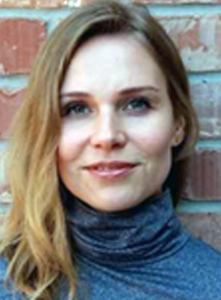
Agata Soroko
Agata Soroko is a Ph.D. student and Joseph-Armand Bombardier Canada Graduate Scholar in the Faculty of Education at the University of Ottawa. A former high school teacher, she holds a B.A. and a B.Ed. from the University of Toronto. Agata completed her master’s degree at the University of Ottawa, where she examined poverty discourses in financial literacy education high school curriculum frameworks. Her doctoral study, funded by the Social Sciences and Humanities Research Council of Canada (SSHRC), investigates high school teachers’ beliefs and practices around financial literacy education. As a Center for Ethics and Education fellow, Agata is interested in how financial literacy can be reframed in a way that aligns with the democratic aims of education in the current era of escalating economic inequality.
Financial literacy education has gained international prominence since the 2008-09 financial crisis. In the paper, Teaching Financial Literacy in an Era of Economic Inequality, I argue that financial literacy education, as currently conceived in U.S. and Canadian state and provincial high school social studies standards, does not live up to its promise to prepare students for financial success given the realities of escalating economic inequality. I suggest three directions in which financial literacy education ought to be reframed to achieve a broader, more critical economic literacy that a democracy requires. First, lessons on finances ought to be rooted in real-world social and economic issues, specifically contemporary problems associated with high levels of income and wealth disparity that undermine financial literacy’s promise to ensure a prosperous future for all citizens. Second, the narrow, individualistic, and consumerist version of current financial literacy standards ought to be replaced by a broader, more critical economic literacy that aligns with the aims of democratic education and takes seriously extreme economic disparities as a threat to our democracy. Third, in order to achieve the first two aims, financial literacy ought to be integrated into other subjects within the social studies curriculum that allow students to explore more broadly the current economic arrangement and the complex interplay of factors in achieving financial security.
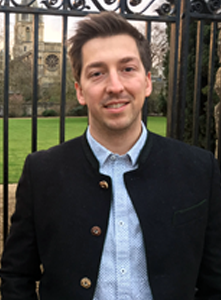
Douglas Yacek
Douglas Yacek is a Ph. D. candidate in Philosophy of Education and Distinguished University Fellow of the College of Education and Human Ecology at Ohio State University. His research interests include educational ethics, civic education, and the history of educational thought. His recent publications have appeared in journals such as Educational Theory, Studies in Philosophy and Education and Philosophy of Education and have dealt with such topics as cross-cultural dialogue, critical theory, democratic education and the philosophy of Friedrich Nietzsche. He will be defending his dissertation on the topic of transformative experience in education in July, and thereafter he has an appointment as a lecturer in philosophy of education at the Catholic University of Eichstätt-Ingolstadt.
In the aftermath of the Sandy Hook shooting in 2012, state legislatures considered a flurry of legislation that would explicitly allow school districts to arm their teachers. At least seven states have signed such legislation into law. In this essay, I examine the ethical implications of arming public school teachers. In the first half of the essay, I argue that the empirical idiom in which the public debate about arming teachers is often carried out obscures important ethical issues concerning students’ perceptions of safety and the integrity of the school learning environment. Specifically, I show that both sides have overlooked the ways in which armed teachers can undermine students’ developmental rights—i.e. their rights to an autonomy-promoting civic education. In the second half of the essay, I argue that armed protection transforms the role of both the teacher and student such that the conditions of democratic teaching and learning are seriously endangered. In the final sections, the argument turns to the issue of public fear surrounding school violence and concludes that efforts to prevent school violence are counterproductive when they simultaneously undermine the school’s ability to cultivate public trust.

Sula You
Sula You, born to a secular but conservative family in South Korea, has learned across various higher education settings in Seoul, Beijing, Hawaii and Oklahoma. She is a recent PhD in Educational Studies from the University of Oklahoma (OU-Norman, Class of 2017) with a specialization in Philosophy of Education. Her dissertation cross-culturally analyzes the role of shame in moral education between South Korea and the United States. Her research and teaching interests encompass a wide range of disciplines, such as Foundations of Education, Comparative Philosophy, Confucian Ethics, Feminist Theory, Moral Psychology, and Education Policy. She is going to teach Chinese Philosophy at the OU Philosophy Department in Fall 2017.
Why do we need free college—what is the goal and whom should it benefit? Discussion of college tuition policy is often confused by 1) disagreement over the purpose of higher education and 2) the lack of specification of the priority target. This paper aims to survey the rationale behind different arguments for and against free tuition. My analysis suggests free tuition plan could have negative unintended consequences despites good intentions, and thus I claim that differential assistance in funding (need-based) and discriminatory pricing is fairer and redistributive. Ultimately, I seek to find an answer to the question, “How could higher education be reasonably tax-funded without detriment to equal educational opportunity?”
